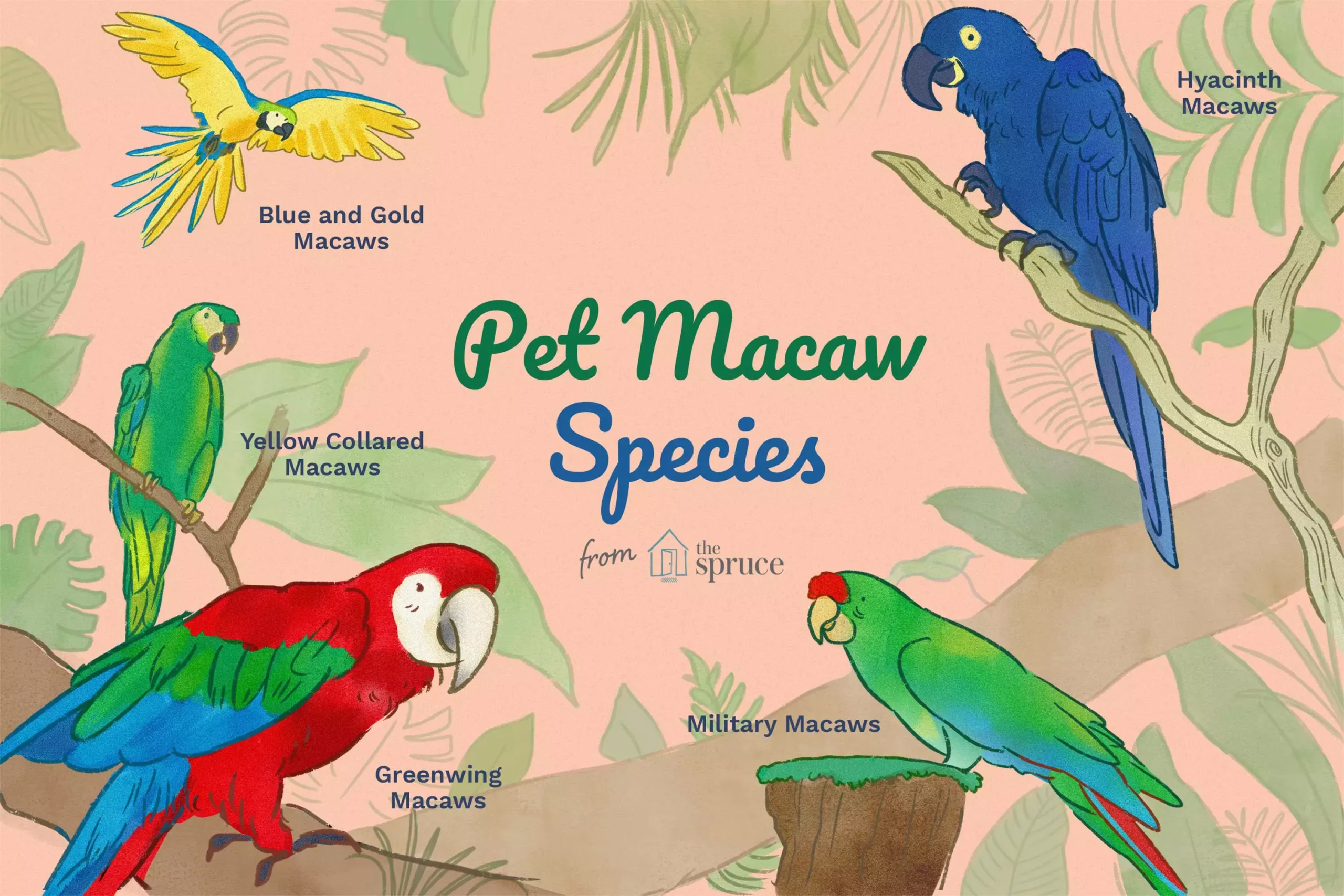Macaws are among the most vibrant and captivating bird species, offering companionship and intelligence that rival traditional pets like dogs and cats. However, these magnificent birds come with specific requirements and challenges that prospective owners need to understand thoroughly before welcoming one into their home. This article aims to explore the various types of macaws, their characteristics, and the dedication required for their care.
The blue and gold macaw stands out not only for its stunning plumage but also for its impressive size, stretching nearly three feet long from beak to tail. This species is known for its sociable nature and becomes highly attached to its owner, making it an ideal companionship choice for those who can handle its social needs. It’s essential for potential owners to recognize that these birds are not suited for beginners; their complex social needs demand consistent interaction and engagement.
One of the blue and gold macaw’s defining traits is their vocalization. Their calls can be startlingly loud, often resembling screams, which can be an adjustment for those used to quieter pets. If you live in a shared space with thin walls, such as an apartment, the noise level could be an issue. However, their vivacious personalities can offer immense joy and companionship for those who are willing to meet their social requirements.
Among the macaw family, Hahn’s macaws are the compact versions, making them a popular choice for novice bird enthusiasts. These delightful birds are not just easier to care for due to their smaller size, but they also exhibit the typical macaw intelligence and sociability. Hahn’s macaws are known for their affectionate nature and can be skillful talkers with the right training, winning over the hearts of their owners with their charming antics.
These birds also require social interaction and can thrive in a loving environment. Given their less demanding space requirements and engaging behavior, Hahn’s macaws may be perfect for owners who want a taste of macaw ownership without the commitment of a larger species.
Challenges with Hyacinth Macaws
On the other end of the spectrum lies the majestic Hyacinth macaw, the largest of the macaw species. As breathtaking as they are, these birds demand a higher level of care and commitment. They thrive on human interaction but can become emotionally distressed if neglected. Therefore, potential owners must be experienced and possess a deep understanding of avian behavior. The Hyacinth macaw is undeniably stunning, featuring vibrant blue feathers and a striking yellow eye ring, but their needs should not be underestimated.
The attention they require is not only in terms of time but also in providing mental stimulation and enrichment. For anyone considering adopting a Hyacinth macaw, it is crucial to evaluate your readiness to meet their extensive needs.
Hybrid macaws are an intriguing category within the macaw family, bred for specific color traits and temperaments. Their mixed lineage means they can exhibit a blend of attributes from the parent species, making them unique and sometimes unpredictable. Ownership of hybrids should be limited to experienced bird caretakers who genuinely understand macaw behavior. This variety offers a chance for owners to appreciate not only the visual appeal but also the diverse personality traits that hybrid macaws may inherit.
Each species of macaw has its unique quirks and needs. For instance, Illiger’s macaws are known for being playful and sociable; they thrive with human interaction, forming strong bonds, particularly when hand-fed as infants. On the other hand, Military macaws, with their inquisitive nature, provide endless entertainment and companionship, but they require significant time and energy input from their owners to keep them happy and engaged.
Similarly, Scarlet macaws and Severe macaws also have specific needs aimed at preventing boredom, often requiring a plethora of toys and interactive mental challenges. Given their potential for noise, size, and devotion needs, macaw ownership is not a decision to be taken lightly.
Owning a macaw, regardless of the species, is a long-term commitment that demands an investment of time, energy, and emotional resources. They need social interaction to remain sociable, mental stimulation to prevent boredom, and enriching environments to thrive. For those who are ready for the challenge, macaws can offer an unmatched companionship that brings joy, laughter, and love into a household.
Anyone considering adopting a macaw should reflect on their lifestyle and readiness to cater to the unique needs of these magnificent birds. With proper care, the rewards of macaw ownership can be tremendous, resulting in a loving and devoted pet that becomes a cherished member of the family.


Leave a Reply